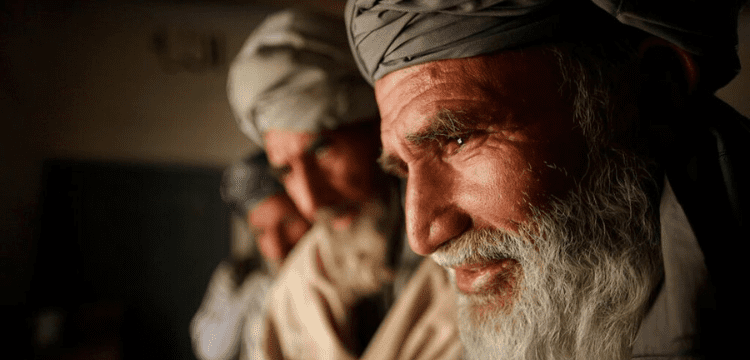[vc_row][vc_column][vc_column_text dp_text_size=”size-4″]Ambassador Munir Akram, Permanent Representative of Pakistan to the United Nations, stated that “from our perspective, the restrictions [on women] that have been put in place by the Afghan interim government flow not so much from a religious perspective, as from a peculiar cultural perspective, of the Pashtun culture, which requires women to be kept at home.” This statement was made during a briefing on the humanitarian situation in Afghanistan. And this has been an unusual, defining cultural reality in Afghanistan for hundreds, if not thousands, of years.
I must strongly disagree as a Pashtun lady, a Pakistani, and a Muslim. The Ambassador, who has subsequently issued an apology for his comments, made an attempt to place the blame for the horrible misogyny Afghan women experience on Pashtun culture. While the Taliban may pervert their religion and culture to serve their own ends, they are the only ones accountable for the egregious violation of women’s rights in the nation they rule.
I am only one of countless Pashtuns who have put their lives in danger to uphold women’s equality, girls’ education, and communal harmony. A brainwashed terrorist organisation has killed, displaced, and beaten Pashtun people all over Afghanistan and Pakistan.
In my girlhood, I attended school. I had aspirations of becoming a doctor, a prime minister, or even a car mechanic. My father, a proud Pashtun man, urged me to learn everything I could, to speak out in public about problems affecting women and girls, and to make my own decisions about my future. The Pakistani Taliban, not my community, were the ones who forbade girls from attending school, women from leaving their houses, men from shaving their beards, music, art, and whatever else they deemed appropriate.
Many Pashtun men and women, as well as those of Tajik, Hazara, Uzbek, and other ethnic groups, spent decades creating networks of girls’ schools and advocacy groups for women’s rights across the border in Afghanistan. They are among those who continue to put their lives at danger today in order to protest on the streets of their nation. They have produced a generation of girls who will not remain mute when their freedoms—to play, work, learn, and travel—are curtailed.
I don’t assert that Pashtun societies are completely just. Our women and girls still confront significant obstacles, just like in many other regions of the world. Girls are not in school as much as boys are. Too many young marriages are imposed onto girls. Women’s worth and rights are frequently undervalued by men, who treat them as second-class citizens. However, just as humans create culture, they can also alter it. Women and men are now collaborating for gender equality in communities all around Afghanistan and Pakistan, and this transition is evident. Even if the Taliban and other extremist organisations try to hold us back, we are developing and moving forward.
I’ve discussed ways to assist Afghan women and girls with numerous officials in Pakistan over the past two years. A few of them appeared unconcerned or resigned to the circumstance. Afghanistan is more tranquil now than it was before, a Pakistani official informed me in September 2021, just after the Taliban seized control once again. But for whom is it calmer now? No way do I want women and girls to lose their independence, right to employment, or access to an education. I retorted, “With all due respect, I don’t think one of us in this room would choose to live in Afghanistan, not even for a day.”
When it comes to the human rights of the Afghan people, Ambassador Akram and world leaders ought to band together and speak as one. In terms of defending women’s rights, they must make no concessions to the Taliban and insist that they lift limitations on women’s employment opportunities, access to higher education, and other issues. In order to help the millions of people suffering from starvation and dislocation, they should also keep looking for ways to go around the Taliban regime. They must, above all, involve Afghan women of all ethnicities and traditions and ensure that their voices are heard in any discussions regarding the future of their nation.
[/vc_column_text][/vc_column][/vc_row][vc_row][vc_column][vc_column_text]
[/vc_column_text][/vc_column][/vc_row][vc_row][vc_column][vc_column_text]
[/vc_column_text][/vc_column][/vc_row][vc_row][vc_column][vc_column_text]
[/vc_column_text][/vc_column][/vc_row]











